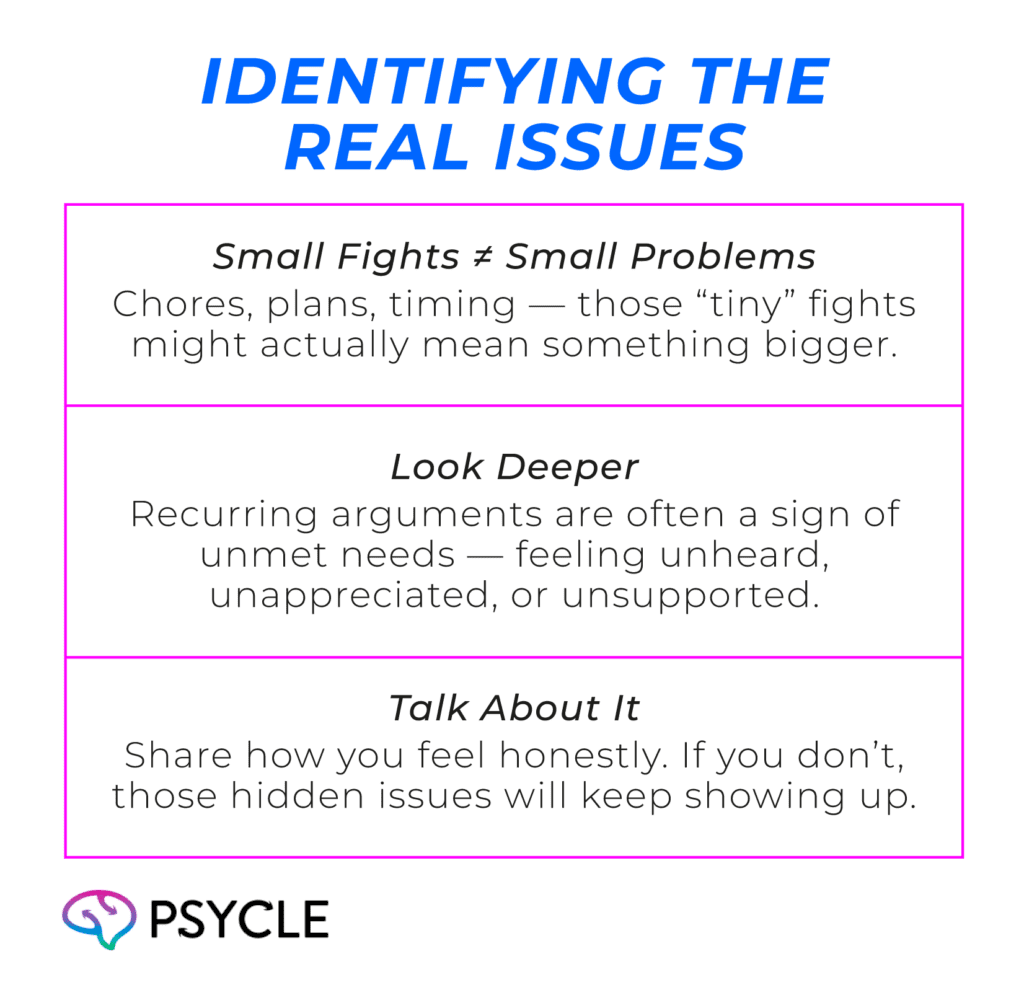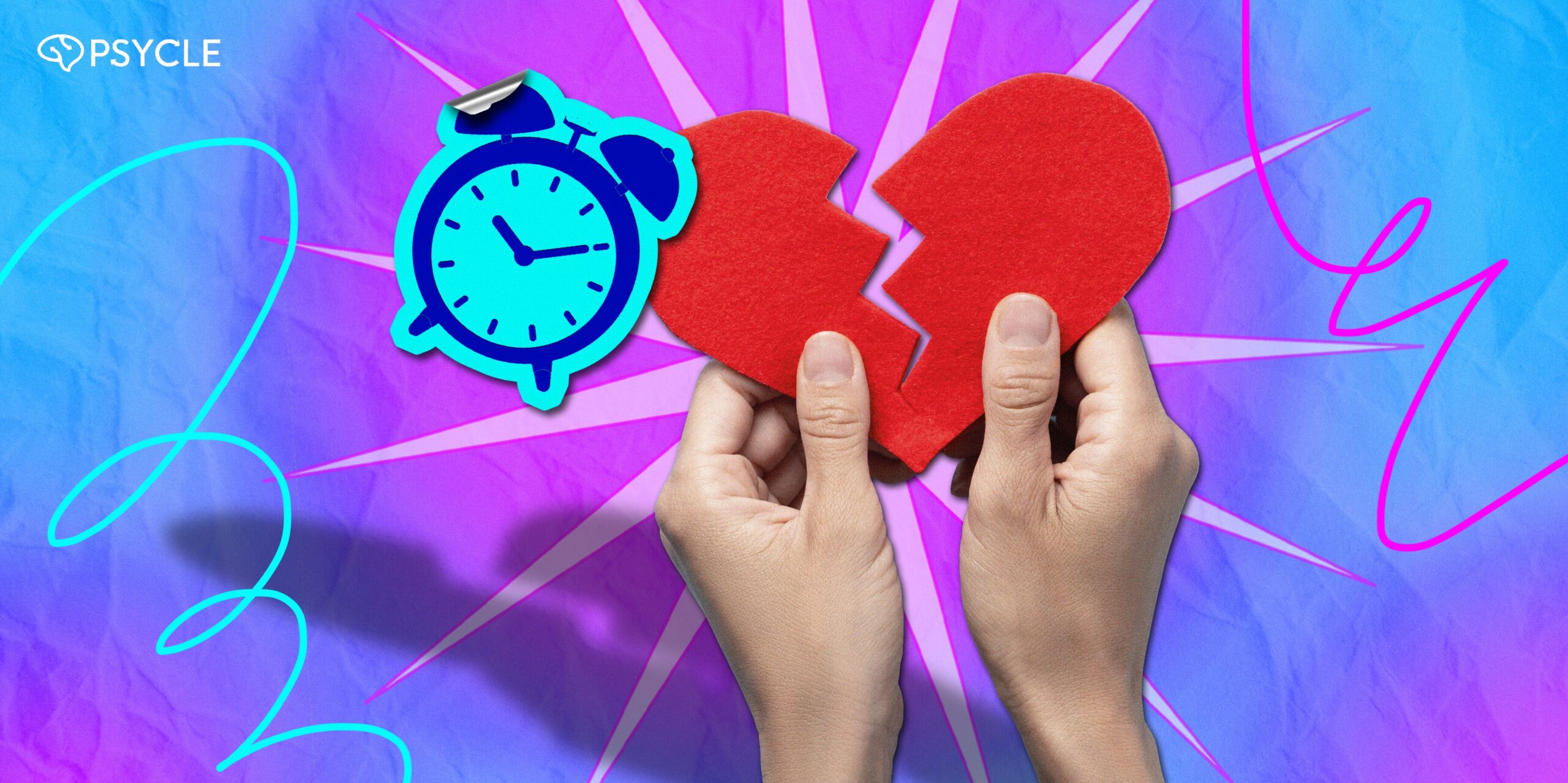Acknowledging that you are considering ending a relationship can be hard to do. In this article, we’ll look at how to check in with yourself and identify some essential clues that a relationship is turning unhealthy. We’ll learn how to distinguish between navigating a rough patch and realizing you may be incompatible.
Key Takeaways
- Surface conflicts may mask deeper issues.
- Communication breakdown is a critical red flag.
- Once you lose trust, it’s hard to get it back.
- Compromising your core values to make it work is too high a personal cost.
- Ending a relationship can be the kindest and healthiest choice for both of you.
Checking In With Yourself
It’s natural to wonder if turbulence is temporary or simply what being together is like. You may question if you’re supposed to feel this way, and whether other people’s relationships have similar problems.
Having doubts about a relationship can be painful, but taking them seriously is necessary. Making time to check in with yourself and get clear on your needs within the relationship is important. Before you can truly know when to end a relationship, you need space to consider if it’s possible to save.
Sometimes reflecting on the relationship more objectively makes it clear that it’s time to walk away. Even if you still care deeply for the other person. To make this self-inquiry, being honest with yourself is the first step.
Identifying The Real Issues

Many couples, especially those who live together, get locked in battles over seemingly small things like chores or timing. On the surface, these arguments look trivial. But recurring themes of conflict can be invitations to discuss deeper issues.
If you’re constantly fighting over your weekend plans, the real problem might not be the activities. It might be feeling unappreciated, unheard, or unsupported. What matters is whether you both can look deeper, consider what’s really bothering you, and share those feelings honestly. If you can’t, the arguments will stay surface level. Unaddressed, the issues beneath them will remain active.
Recognizing Incompatibility
When minor disagreements explode into larger fights, or if it feels impossible to resolve fundamental differences, deeper incompatibilities may be generating the tension. This might involve having different needs for closeness, different ways of expressing love, or conflicting lifestyles and values that cross each other’s boundaries.
When conversations reliably spiral into arguments, or worse, when it feels impossible to have meaningful conversations at all, it’s often a sign that the relationship isn’t just struggling. You may be fundamentally mismatched.
Communication Breakdown
Communication breakdowns tend to fall into two patterns: going quiet or getting fiery. Some couples stop discussing anything meaningful. Silence becomes the default choice over conflict. Internally, this “peacekeeping” isn’t peace at all. It usually means your differences have tipped past repair.
For other couples, every interaction becomes a confrontation. Even small conversations become battlegrounds. Concerns are dismissed or minimized, and frustration boils over quickly. If your discussions never resolve problems, arguments feel abusive, or reliably explode into personal attacks, it suggests that your current bond, even if it was once a healthy relationship, no longer has the capacity for healthy repair.
The Erosion of Trust
Once trust is lost, it’s tough to bring it back. Doubt often starts small: a sense of uncertainty about whether your partner is reliable or honest. When doubt grows unresolved, it can turn into suspicion. Suspicion leads to constant unease, anxiety, and second-guessing. Over time, this can develop into fear: fear of being open, vulnerable, or hurt again.
This cycle, from doubt to fear to withdrawal, tends to reinforce itself. Once withdrawal sets in, intimacy and connection shrink. If the issues that caused mistrust can’t be talked through and resolved, mistrust will keep resurfacing and create greater distance between you.
Signs of Emotional Distancing
Emotional closeness and strong communication go hand in hand with affection. When those start to break down, emotional distance grows. Look out for fewer shared jokes, less interest in each other’s daily lives, or a silence that stretches longer each day.
Affection on both digital and physical levels often fades, too. Hand-holding, casual touches, or spontaneous kisses start to disappear. If physical intimacy feels forced, performative, or unwelcome, that usually reflects a deeper emotional gap.
Do you daydream about how things used to be? If nostalgia becomes your primary feel-good engine, it’s often a sign that the relationship has moved past repair.
Compromising on Core Values
Every couple argues. In healthy relationships, disagreements can make the connection stronger, especially when they’re about preferences, like entertainment or food. But disputes over core values; like where to live, religion, or whether to have children; indicate you have different priorities.
If you have swallowed self-sacrifices that feel like a loss of identity just to keep the relationship going, the cost may be too high. Compromising on things central to who you are creates long-term strain. Talking about these issues at the time is essential, but if your values simply don’t match, the relationship may not be sustainable.
The Burden of Emotional Labor
Relationships require reciprocity. Both people need to give and take. If one partner consistently makes more sacrifices, does all the emotional labour, or always makes compromises, resentment builds.
This imbalance can erode your sense of self. Over time, you might realize that your choices no longer reflect your true self. If you rarely do what matters to you, or you feel you’ve lost yourself in the process of keeping the relationship alive, it’s a serious red flag.
Destructive Cycles
Some couples fall into a loop of breaking up and getting back together. Each time, it feels like a chance to start fresh. But if the underlying problems remain unchanged, the same issues will eventually cause another breakup. Over time, this cycle can become predictable and even addictive.
In these situations, your dynamic can take on elements of a trauma bond. The repetition of rupture and reunion starts to feel like the only familiar rhythm. The fastest way to recover may be to step off the cycle entirely and choose not to return.
Considering Your Future
One of the most evident signs a relationship may be ending is misaligned visions of the future. Sometimes the issue isn’t only your differing dreams, but how far ahead you’re both looking.
If neither your hopes nor your timelines line up, your futures may already be pointing in different directions. Without shared goals, it’s hard to build a path forward together.
Ending Things Respectfully
Deciding to end a relationship is an achievement in itself. If communication is possible between you, delivering the news with care can ease the pain for both people.
First, prepare for your own emotions. Expect sadness about the loss, guilt if the decision isn’t mutual, and to worry about your soon-to-be ex’s reaction. Anticipating these feelings can make the conversation easier to navigate.
The goal is to communicate clearly and respectfully. Ending things with honesty, rather than blame, helps both people begin to process the transition.
After The Breakup
A breakup doesn’t mean failure. Moving on can be the beginning of something healthier. Trusting your decision allows you to realign with your values, reconnecting with forgotten parts of yourself.
You may rediscover interests, friendships, or dreams you had neglected. Maybe you’ll focus on building a personal goal, learning a new skill, or planning a trip you’ve always wanted to take.
Being kind to yourself is key. Remember that heartbreak is temporary, however acute it feels. Living in discomfort to keep a relationship going is damaging. If staying together involves ongoing heartache, the short-term pain of breaking up is often the healthiest choice for both people involved.
FAQs
Should I Tell My Partner I’m Considering Ending the Relationship Before Making a Decision?
Only if you wholeheartedly believe you can work things out. And that your partner might be receptive to puzzling through it. If you’ve already decided it’s over or previous attempts to fix things together have failed, prepare for a clear breakup conversation instead.
How Can I Support a Friend Who’s Considering Ending Their Relationship?
Listen without judging either of the couple. Avoid telling them what to do or assuming that saving the relationship is the best option. Instead of offering advice, ask thoughtful questions to help them reflect and validate their concerns. Remind them gently that prioritizing their personal well-being isn’t selfish.
Sources
- https://www.attachmentproject.com/psychology/trauma-bonding/
- https://www.citystgeorges.ac.uk/news-and-events/news/2022/08/what-is-emotional-labour-and-how-do-we-get-it-wrong
- https://www.tonyrobbins.com/ultimate-relationship-guide/key-communication-relationships?srsltid=AfmBOopx42MtveqRDur4roxRHfdJGVuJ9xA1SNV6FENQptnO6v1wsZ5u
- https://www.unh.edu/pacs/break-ups-how-help-yourself-move
- https://www.youtube.com/watch?v=V-0Z1Lk_Xg4
- https://www.youtube.com/watch?v=wRaa6UdBOB0

